Coronavirus: The month that changed life as we know it
- Published
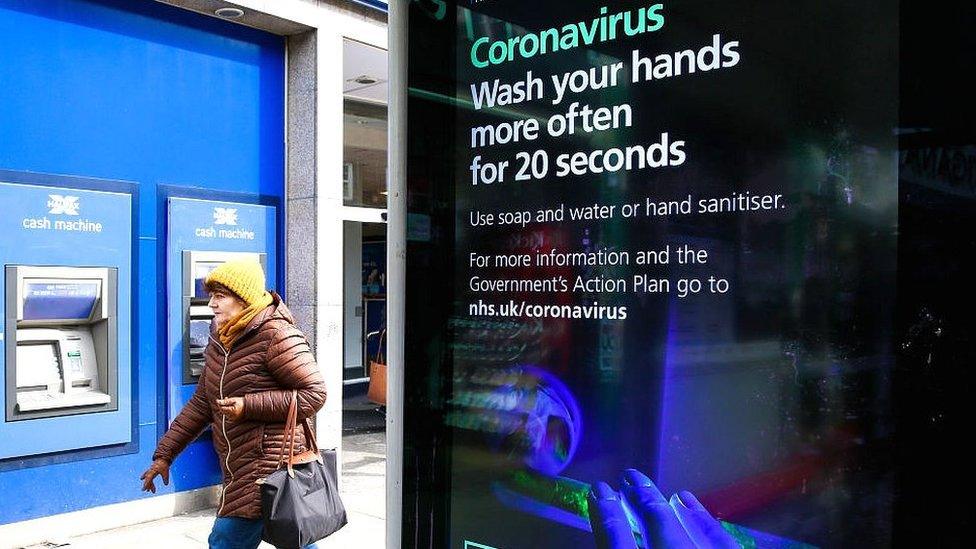
When the first case of coronavirus was confirmed in Scotland few could have predicted the speed, scale and scope of what happened next. Covid-19 touched everything and changed everything.
It triggered an unprecedented lockdown and, overnight, put the UK into hibernation mode. The pandemic also created a new reality defined by terms such as social-distancing and self-isolation.
BBC Scotland looks back on a surreal month that transformed life as we know it.

1 March
Shortly before 19:30 a Scottish government press release, external confirmed the first positive case of coronavirus in Scotland.
It said the patient, from the Tayside area, was being treated in isolation having recently travelled home from Italy.
Until this point there had been a total of 698 negative test results since the start of the outbreak in Wuhan, China.
It later emerged the man was an employee of Food Standards Scotland.
2 March
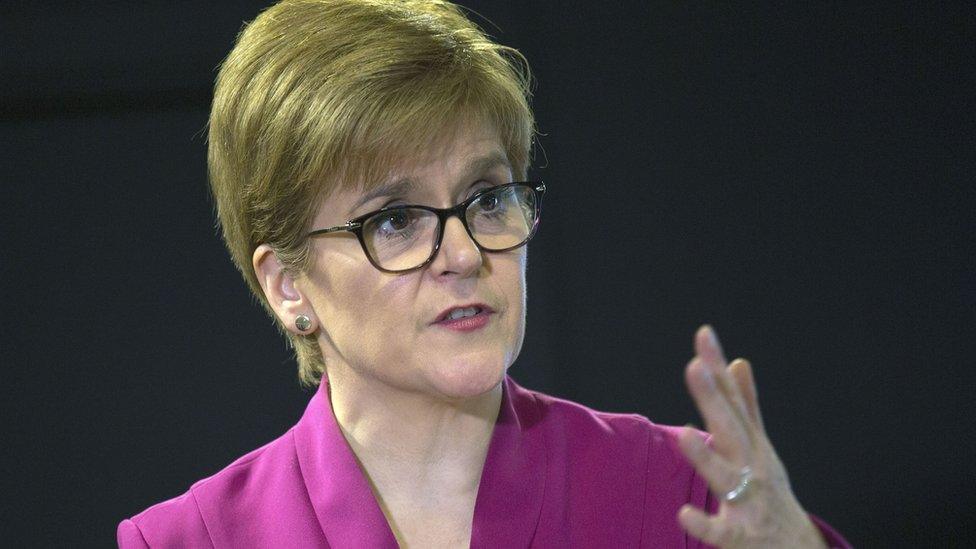
The first minister has held daily Covid-19 briefings since 2 March
First Minister Nicola Sturgeon said the patient had followed the correct protocols by reporting their concerns over the phone and self-isolating before they were admitted to hospital.
But Ms Sturgeon added that as more patients were confirmed, they would not be admitted to hospital unless there was a "clinical need".
Scotland's chief medical officer, Dr Catherine Calderwood, said 80% of people in Scotland would have a mild form of the illness but 4% could require hospital treatment.
She also revealed that experts did not expect to see large numbers of cases for "probably a couple of months from now".
6 March
The number of people infected with the virus in Scotland reached double figures after increasing from six to 11.
Scotland Women's Six Nations match with France at Glasgow's Scotstoun Stadium became the first major sporting casualty after a home player contracted coronavirus.
11 March
The first case of Covid-19 transmitted within the community was detected in Scotland.
Until now cases of the virus had been traced to people who had travelled to affected areas, such as northern Italy.
The development was announced on the day the World Health Organization (WHO) labelled the outbreak a pandemic.
At Westminster Chancellor Rishi Sunak used his Budget speech to unveil a £30bn package to boost the economy and get the country through the outbreak.
12 March
The first minister announced gatherings of more than 500 people should be cancelled.
Nicola Sturgeon said this was to free up emergency services, including police and ambulance crews, to deal with the pandemic.
She said it was not yet necessary to close schools, but advised all overseas school trips should also be cancelled.
The development came on the day the country had moved from the containment to the delay phase of dealing with Covid-19.
13 March
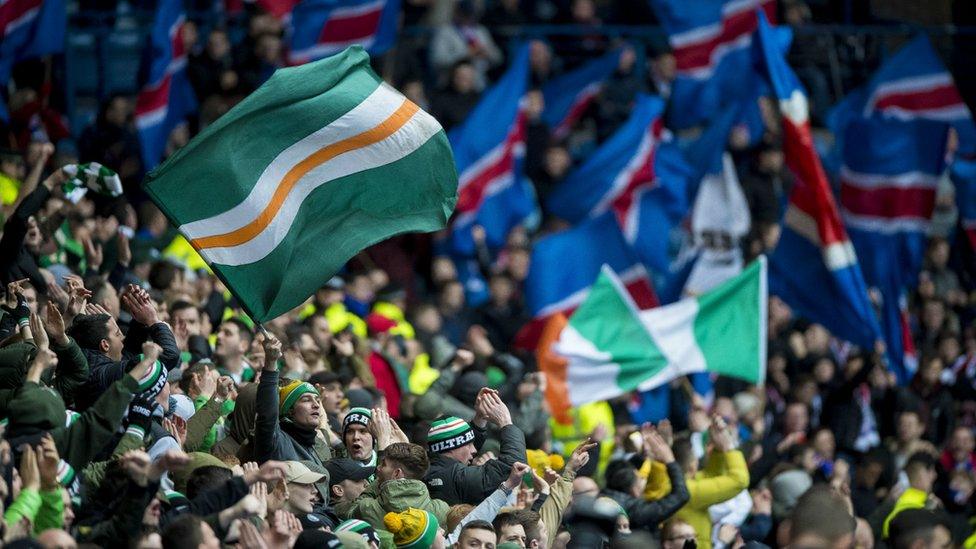
The Scottish football season was last week postponed indefinitely due to the pandemic
An elderly patient with underlying health conditions became the first person in Scotland to die after testing positive for Covid-19.
On a day of major developments, the Scottish football season was postponed indefinitely and Scotland's Six Nations match with Wales was also called off.
Other postponements included the Edinburgh Marathon, Radio 1's Big Weekend in Dundee and the annual Tartan Day parade in New York.
Amid major concerns about the long term economic impact of the pandemic, Edinburgh Airport warned it could be facing "close to zero" passenger demand in the coming months.
15 March
Scottish Health Secretary Jeane Freeman said the NHS in Scotland was seeking to double the number of intensive care beds to cope with the outbreak.
It also emerged six cases of Covid-19 had been confirmed at a care home in North Lanarkshire.
Meanwhile, UK Health Minister Matt Hancock said every Briton over the age of 70 would be told "within the coming weeks" to stay at home for an extended period to protect themselves from the virus.
16 March
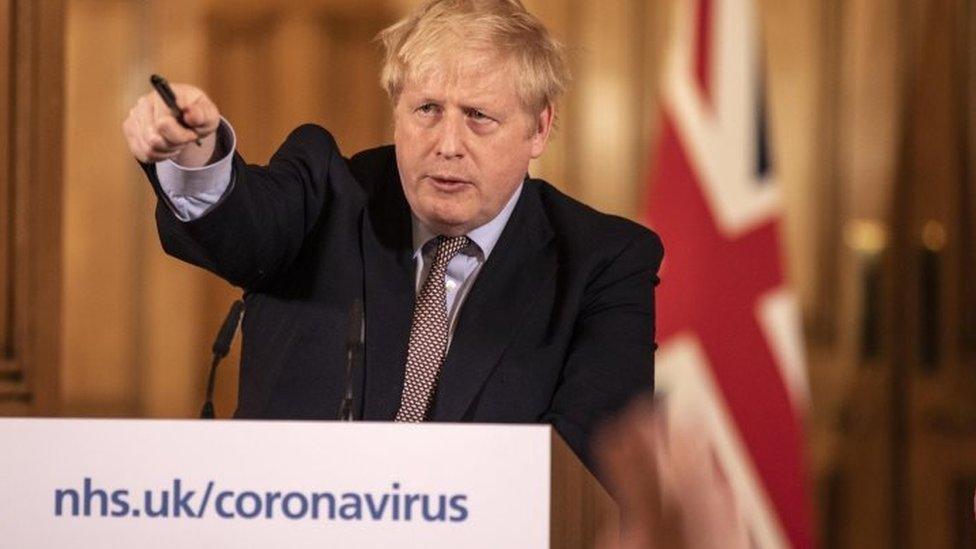
Prime Minister Boris Johnson said all non-essential travel should be avoided
The enormity of the pandemic was laid bare during two sombre press conferences in London and Edinburgh.
Prime Minister Boris Johnson said everyone in the UK should avoid "non-essential" travel and contact with others to curb the spread of the virus.
Mr Johnson also said people should work from home where possible while people in at-risk groups would be asked within days to stay home for 12 weeks.
First Minister Nicola Sturgeon told the media "life will change significantly" and she emphasised the need for every citizen to reduce all non-essential social contact.
Households were also told to self-isolate for 14 days if one member had symptoms - either a new cough or fever.
At a briefing earlier in the day the Scottish government warned mass gatherings could be off for up to four months.
17 March
Health Secretary Jeane Freeman told MSPs the NHS in Scotland was now on an "emergency footing".
All non-urgent elective operations were suspended in a bid to help the service double its intensive care capacity.
In sport, Uefa announced Euro 2020 was postponed until 2021 and the SFA cancelled the Scottish Cup semi-finals and final.
18 March
Education dominated the headlines on a day when it emerged a third Scottish patient had died after being diagnosed with Covid-19.
The first minister announced schools and nurseries across the country would close from the end of the week and might not reopen before the summer.
In other developments, the economy secretary pledged to replicate measures announced by the UK government to support business during the outbreak, dentists were told not to perform some routine procedures and churches said only close family should attend funerals in the current climate.
19 March
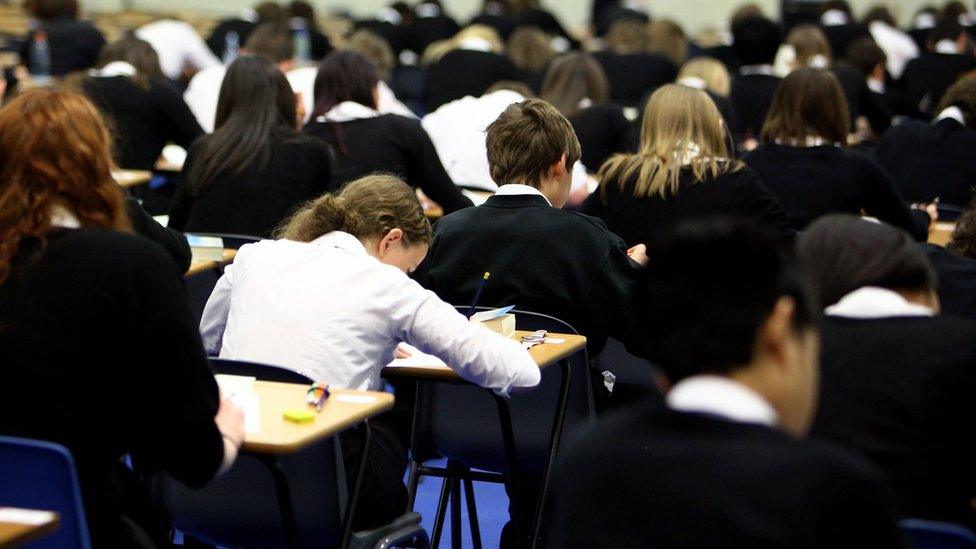
For the first time in history national exams in Scotland have been cancelled
Education Secretary John Swinney confirmed exams for Scottish school pupils would not take place for the first time since the system was put in place in 1888.
Mr Swinney told MSPs the move was "unprecedented" but necessary to prevent the spread of the virus.
Meanwhile, the first minister confirmed the number of Covid-19 deaths had doubled to six.
20 March
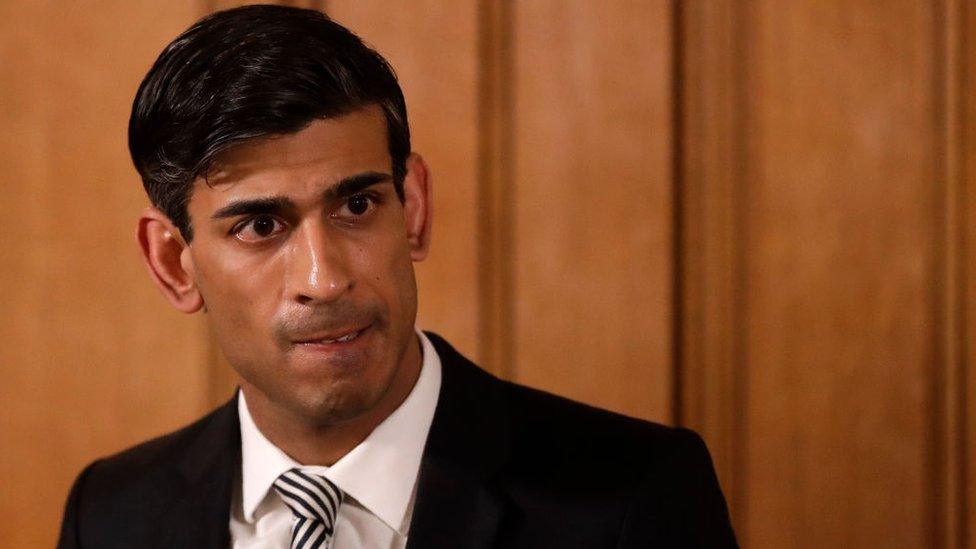
Chancellor Rishi Sunak described his subsidy package as 'unprecedented'
An astonishing week ended with Prime Minister Boris Johnson announcing all pubs and restaurants must close from Friday night - except for take-away food - to tackle coronavirus.
Mr Johnson used his daily briefing to announce all the UK's nightclubs, theatres, cinemas, gyms and leisure centres had also been told to close "as soon as they reasonably can".
In a separate development the UK government announced it would pay the wages of employees unable to work due to the pandemic.
The chancellor said the government would meet up to 80% of the salary costs for staff kept on by their employer, covering wages of up to £2,500 a month.
Meanwhile, Nicola Sturgeon warned that Scots were facing the "biggest challenge of our lifetimes" in the fight against coronavirus.
21 March
Finance Secretary Kate Forbes urged people to stop travelling to the Highlands in a bid to avoid the coronavirus.
As a seventh Scottish death from Covid-19 was confirmed, a doctor expressed concern over hygiene levels at the Queen Elizabeth University Hospital in Glasgow.
Meanwhile, the UK government told shoppers in the UK to "be responsible" and think of others after panic-buying across the UK.
22 March
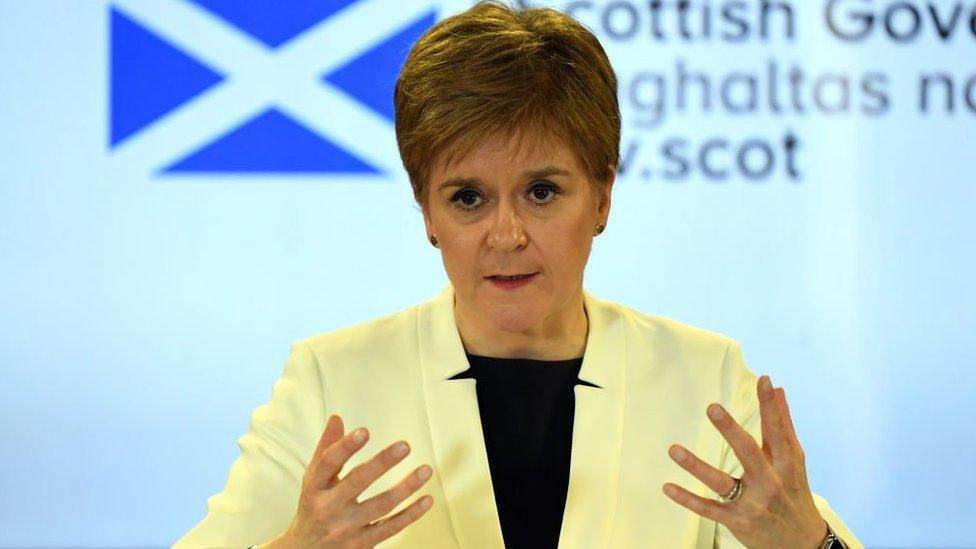
Nicola Sturgeon said parks and beaches "should not be full"
The first minister warned "life should not feel normal" as the number of Scottish deaths reached double figures.
Nicola Sturgeon also expressed concern about people flouting social distancing guidance comes amid reports some pubs remained open despite the UK government ordering them to close to prevent further spread of Covid-19.
During the briefing Scotland's chief medical officer said Covid-19 appeared to be spreading faster in the UK than in China.
Prime Minister Boris Johnson warned "tougher measures" could be introduced if people do not take the government's coronavirus advice seriously.
23 March
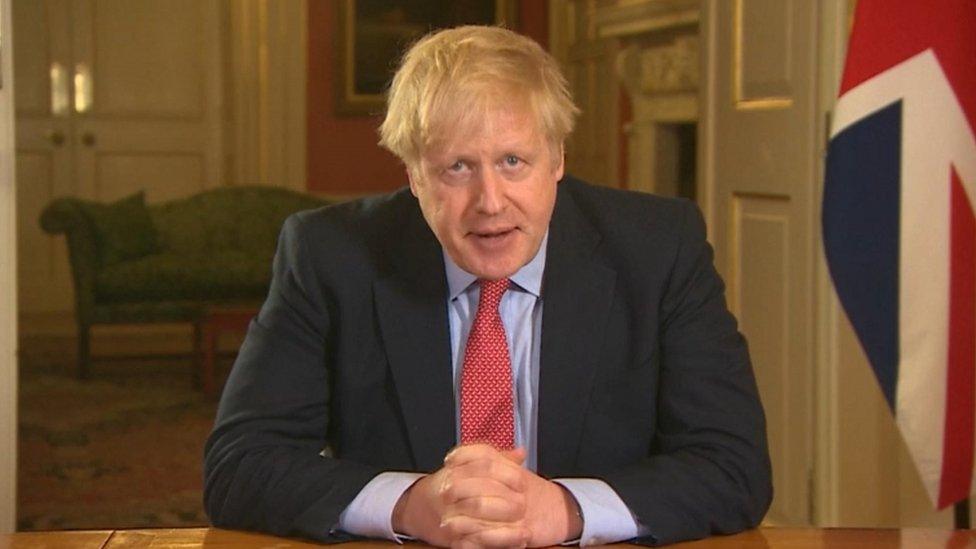
Boris Johnson made his address to the nation from 10 Downing Street
In a historic broadcast Prime Minister Boris Johnson told the nation: "You must stay at home."
Mr Johnson announced people will only be allowed to leave their home for very limited purposes.
The first minister later said the extraordinary measures were necessary to slow the spread of Covid-19, ease pressure on the NHS and save lives.
Nicola Sturgeon said: "Let me blunt. The stringent restrictions on our normal day to day lives that I'm about to set out are difficult and they are unprecedented. They amount effectively to what has been described as a lockdown."
"I am not going to sugar coat it in any way. Coronavirus is the biggest challenge of our lifetime."
24 March
On the first day of lockdown health secretary Jeane Freeman said the number of intensive care beds in Scotland would be quadrupled.
Holyrood also backed the coronavirus bill which will see enforcement powers come into force as soon as the legislation is enacted.
And it was announced Scotland's campsites, caravan parks and holiday parks are to close in a bid to halt the spread of the disease.
25 March
Clarence House confirmed Prince Charles had become the UK's highest profile Covid-19 victim but said he was only displaying mild symptoms.
In Hungary Scottish diplomat Steven Dick, 37, died after contracting Covid-19.
On day two of the lockdown the streets of Glasgow, Edinburgh, Aberdeen, Inverness, Dundee and Dumfries became eerily empty.
26 March
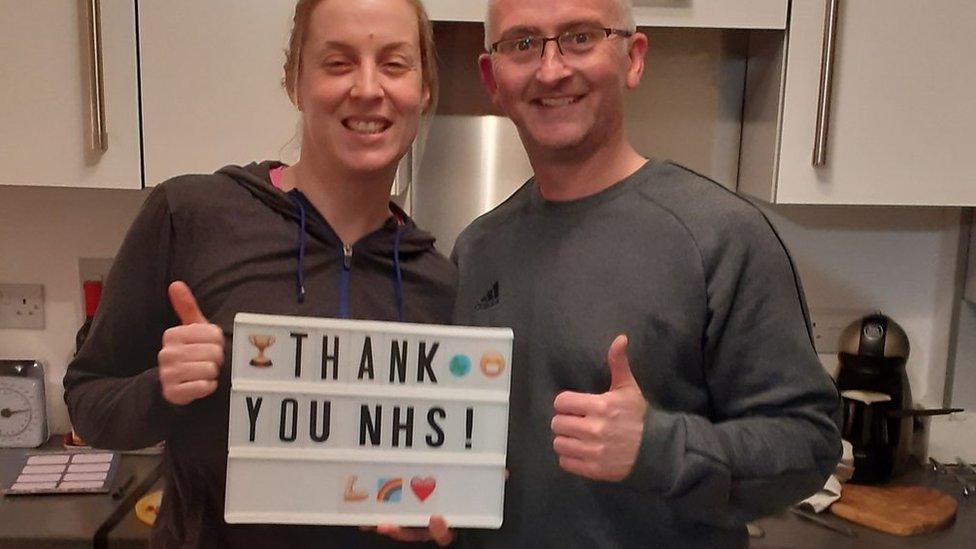
People across Scotland stopped to applaud in support of the health workers fighting coronavirus.
Chancellor Rishi Sunak announced a package of financial support for the self-employed and told them: "You have not been forgotten".
In Scotland the chief medical officer confirmed "detailed discussions" were taking place regarding sites for temporary hospitals.
On a brighter note, people stopped and applauded NHS staff at 20:00 in a moving UK-wide tribute.
27 March
After a week of bombshell announcements Prime Minister Boris Johnson confirmed he had been diagnosed with coronavirus.
Hours later it emerges health secretary Matt Hancock had also tested positive while Prof Chris Whitty, chief medical officer for England and Wales, was showing possible symptoms.
Scotland's chief medical officer Dr Catherine Calderwood said the actual number of people infected in Scotland could now be more than 65,000.
Police Scotland's chief constable said officers would take a "common sense" approach to enforcing the new coronavirus lockdown powers.
And Justice Secretary Humza Yousaf said prisoners nearing the end of their sentences may be released as early as next week to halt the spread of coronavirus in Scotland's jails.
28 March
Secretary of State for Scotland, Alister Jack, became the latest high profile politician to self-isolate after he developed coronavirus symptoms.
In London organ transplant consultant Dr Adil El Tayar was named as the first working NHS surgeon to die in the UK from Covid-19.
Meanwhile, NHS England medical director Prof Stephen Powis admitted if the UK death toll was kept below 20,000, "we will have done very well".
29 March
England's deputy chief medical officer warned it could be six months before life in the UK returns to "normal".
As the number of deaths in Scotland increased to 41 the chief medical officer said restrictions on movements could last for 13 weeks.
Scotland's national clinical director Prof Jason Leitch also urged people only to use the 111 line if their symptoms get worse.
30 March
The first minister announces the Scottish Event Campus (SEC) in Glasgow could be in operation as a temporary hospital within two weeks
Nicola Sturgeon also confirms several NHS cancer screening programmes - including breast, cervical and bowel - are suspended, so health staff can further concentrate on the battle against Covid-19.
More than 21,000 people sign up for the Ready Scotland, external campaign, bringing together volunteers with the health and care sectors.
31 March
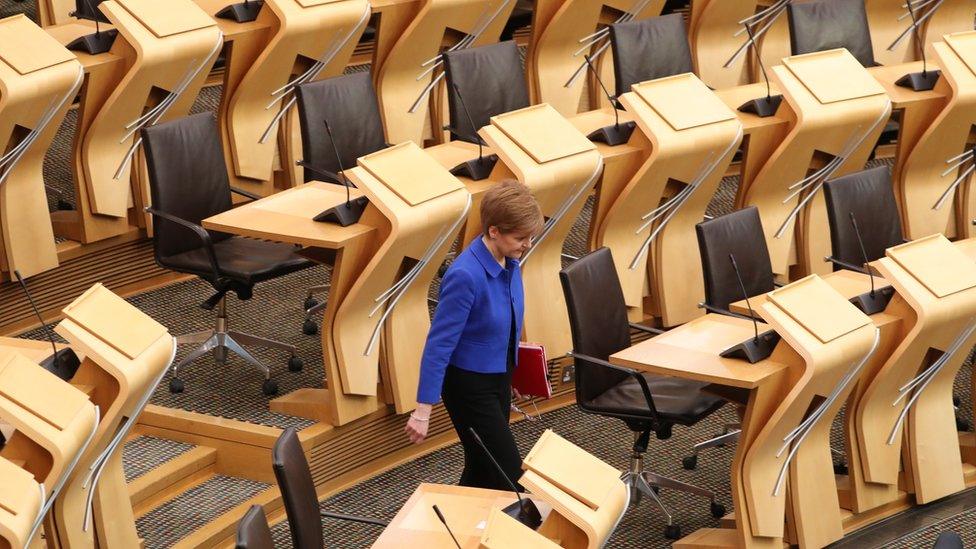
Holyrood agreed to sit for a single day to consider the emergency powers bill - and then close for several weeks
A further 13 people with coronavirus have died in Scotland bringing the total to 60.
First Minister Nicola Sturgeon said a total of 1,993 people had now tested positive for the virus and 135 are in intensive care.
Later it emerged cases of coronavirus had been confirmed in the Western Isles and Orkney.
This means the virus has now been confirmed in all 14 Scottish health board areas.
To date there have been more than 800,000 cases of Covid-19 worldwide and 38,000 have died from the virus.
April will begin with MSPs debating the emergency coronavirus bill which contains measures deemed necessary to combat what the government has described as a "severe and sustained threat to human life".
Just a few weeks ago all this would have been unthinkable but, for now, it is the new normal.

EASY STEPS: How to keep safe
A SIMPLE GUIDE: What are the symptoms?
GETTING READY: What is the UK's 'delay' phase?
TRAVEL PLANS: What are your rights?
IN-DEPTH: Coronavirus pandemic

- Published5 July 2023
